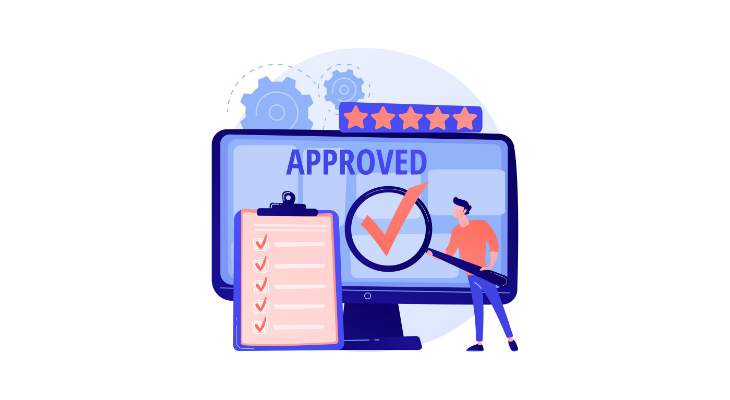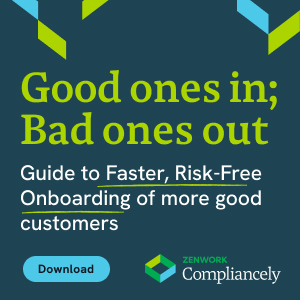
Which Firms Should Search The OFAC Data Lists Regularly?
AML directives recommend businesses screen the incoming profiles against the global sanction lists within reason and feasibility. This means that in addition to verifying the identities, sources of funding, ultimate beneficiaries, and monitoring transactions continuously, enterprises also need to focus on sanction screening at regular intervals.
In this context, enterprise industries include banking, finance, insurance, lending, e-commerce, logistics, retail, government, and more. Regardless of the size of the entity, it is advised by the FATF, EU, and other AML regulatory bodies, to screen the profiles for any sanctions as listed in the global sanctions list, such as the OFAC.
The interval specified for each sanction search varies for every entity and the profile. For example, if you’re a bank and sceptic about a profile’s risk spectrum prior to or post onboarding, it is worthy to monitor the volume of transactions, sources of funding, and screening the profile against the OFAC sanctions list. Further, monitor the account activity of the profile for continued risk assessment and control.
While the focus in this context is on enterprise industries, every entity that deals with substantial and reasonable monetary experiences must incorporate sanction screening in their due diligence procedures to prevent risk.
The following will discuss in brief the significance of OFAC sanctions, the ideal frequency for OFAC screening, and approaches to prevent the risk of AML violations.
Significance Of OFAC Sanctions In Risk Screening
The OFAC Sanctions are economic and financial sanctions issued to countries, nationals, groups, and entities targeted by the U.S. and recognized as a threat to its economic policy. So, if you were to hire someone from a foreign country or conduct trade or export transactions, you must vet the foreign entity or the nation against the OFAC sanctions list.
This allows you to understand the background and legal status of the foreign entity, financial conduct, and present-day risk that the entity might pose to your business. Violating these sanctions could lead to civil penalties and operational prohibitions from the OFAC.
Verifying a profile with OFAC sanction screening will enable you to assess the risk a profile poses in the context of the present-day economic ecosystem. This means commercial conduct with high-risk profiles makes your business susceptible to risk.
Sanction screening, predominantly an AML-ATF practice, enables you to further validate the nature of the business entity, its financial genesis, and the officers that are possibly funding and executing the business – all of which are intricate factors in foreign commercial transactions.
How Often Should You Screen A Profile For OAFC Sanctions?
While there is no specific interval for sanction screening, the regulatory bodies, such as OFAC advise businesses to screen profiles as and when the data lists are updated and published. This could be interesting since the OFAC doesn’t really have a known schedule for sanction file updates. Given the vast number of sanction programs with specific tags that the OFAC operates with, it can be a bit difficult to keep up with the updated data lists on your own.
However, to combat such technical calamities, Compliancely enables you to validate profiles with real-time sanction screening and re-screening, helping your business prevent risk at all times. This future-first screening approach gives your business the foresight it needs to plan your customer bases and locate the high-risk profiles as and when the OFAC updates its sanctions files.
How To Interpret OFAC Sanctions?
Let’s assume that the profile you’re screening ends up being listed in the OFAC sanctions search results, the best thing you can do for your business is to cease all business associations to avoid possible OFAC sanction violations.
OFAC sanctions are serious impositions and levied on individuals and entities that have violated key compliance regulations of the U.S. economic and foreign policy. Sanctions are usually issued to profiles that engage in money laundering, export of mass destruction or warfare material, drug trafficking, and similar non-compliant activities. So, continuing to engage with an individual or entity listed in the OFAC sanctions list is a clear violation.
If you think that the profile has been wrongfully sanctioned, you can request the OFAC to review the order. However, as long as the sanction is in dispute, any trade or commercial conduct will be deemed a violation of the OFAC sanctions.
How Compliancely Helps With OFAC Sanctions Screening?
Compliancely, a real-time identity verification infrastructure, enables enterprise industries to verify millions of profiles within minutes. With OFAC sanctions check, PEP screening, and consolidated sanction checks, your risk assessment requirements are met effectively.
Screen each profile with multiple global sanction lists in real-time and check the sanction status on each profile in real-time.
This means bulk identity verification and AML screening is made easier.
